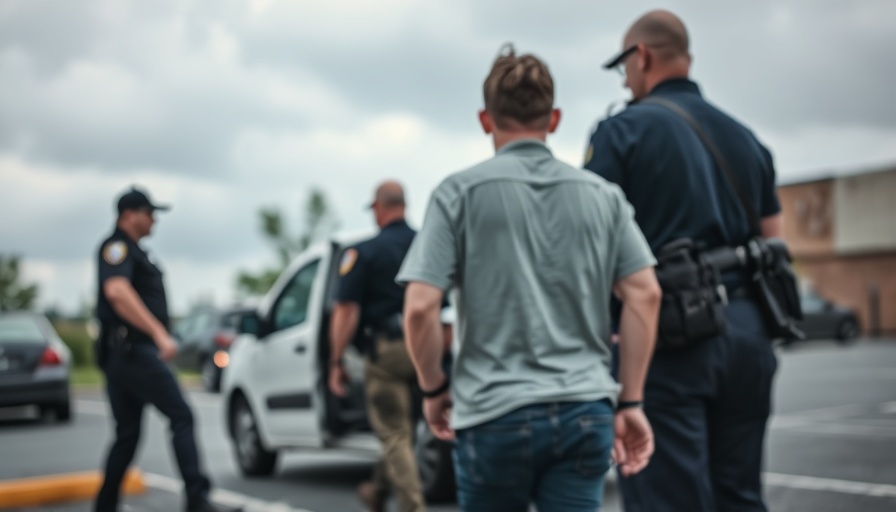
Newark Mayor Arrested in a Controversial ICE Facility Visit
In a shocking turn of events, Ras Baraka, the mayor of Newark, New Jersey, was arrested during a visit to an Immigration and Customs Enforcement (ICE) facility. This incident, occurring on a Friday, has raised eyebrows across the nation as it highlights not only the actions of local officials but also the contentious issues surrounding immigration policies in the United States.
Understanding the Context of the Arrest
Mayor Baraka’s visit was part of a broader congressional delegation aimed at reviewing conditions within the ICE facility. These types of visits usually focus on examining the treatment of individuals in detention and addressing concerns raised by advocates about inhumane conditions. However, Baraka’s arrest has shifted the narrative, sparking debates about the rights of elected officials and the limitations they face when challenging federal agencies.
The Implications of Baraka’s Arrest
This unprecedented event invites critical reflection on the balance of power between local and federal governments. Many view this as a blatant overreach by ICE, serving as a chilling reminder of the tensions that pervade immigration enforcement in America. Critics argue that such actions could deter public officials from addressing injustices reported in facilities intended to house immigrants — a vital responsibility in fostering transparency and accountability.
Emotional Responses from the Community
Reactions from Newark residents have varied significantly. Supporters of Baraka praise him for advocating for immigrant rights, while opponents express concerns regarding the mayor’s methods and the legality of his actions while interacting with ICE. Social media platforms have erupted with discussions, highlighting the community's deep-seated feelings toward immigration. One local resident expressed, “It’s about time someone stood up to ICE. They can’t just act like they own our streets.” This sentiment encapsulates a growing tension nationwide as communities face the ramifications of strict immigration policies.
Drawing from Historical Context
Historically, Newark has been at the forefront of social justice movements, with waves of activism often arising from issues relating to race and equality. This event echoes that legacy, reminding us of the civil rights struggles that highlight the importance of local governance in contesting federal authority. There’s a long history of mayors and community leaders challenging policies they believe to be unjust, positioning Baraka within a broader continuum of resistance.
Public Policy Considerations and Future Predictions
As we look ahead, Mayor Baraka’s arrest signals significant implications for policymaking at both the local and federal levels. If left unchecked, this could create an environment where public officials are hesitant to engage with federal agencies, especially regarding matters where they seek to advocate for their constituents. The potential outcome of the ongoing debate may lead to legislative changes aimed at better defining the relationship between local leadership and immigration enforcement agencies.
What Can We Learn From This Incident?
This incident serves as a critical reminder of the dynamics between immigration enforcement and civil rights advocacy. Understanding the complexities involved may empower other local officials to take a stand on contentious issues without fear of repercussion. Moreover, it illustrates the necessity for citizens to engage in civic discourse, emphasizing the importance of civic responsibility in shaping policies that affect their communities.
The Outlook for Newark and Beyond
In conclusion, while the circumstances surrounding Mayor Ras Baraka's arrest remain fluid, it encapsulates larger national concerns regarding immigration and the role of local government. Regardless of the outcomes, this event will likely continue to stir public debate, drawing in new voices and perspectives on how America addresses the intricacies of immigration policy. As citizens, we must remain engaged and informed, as this narrative is not just about one mayor or one city; it is about the principles of justice and equity that resonate across the nation.
 Add Element
Add Element  Add Row
Add Row 



Write A Comment